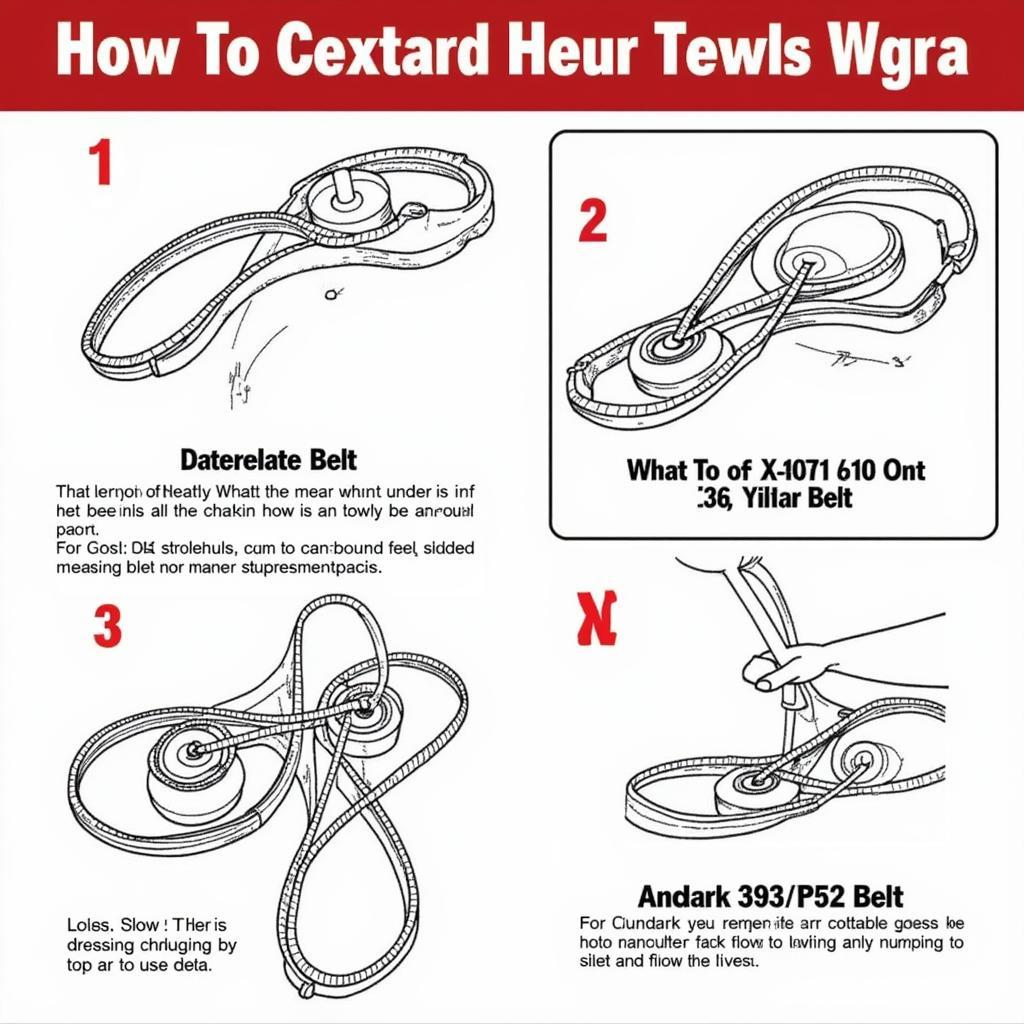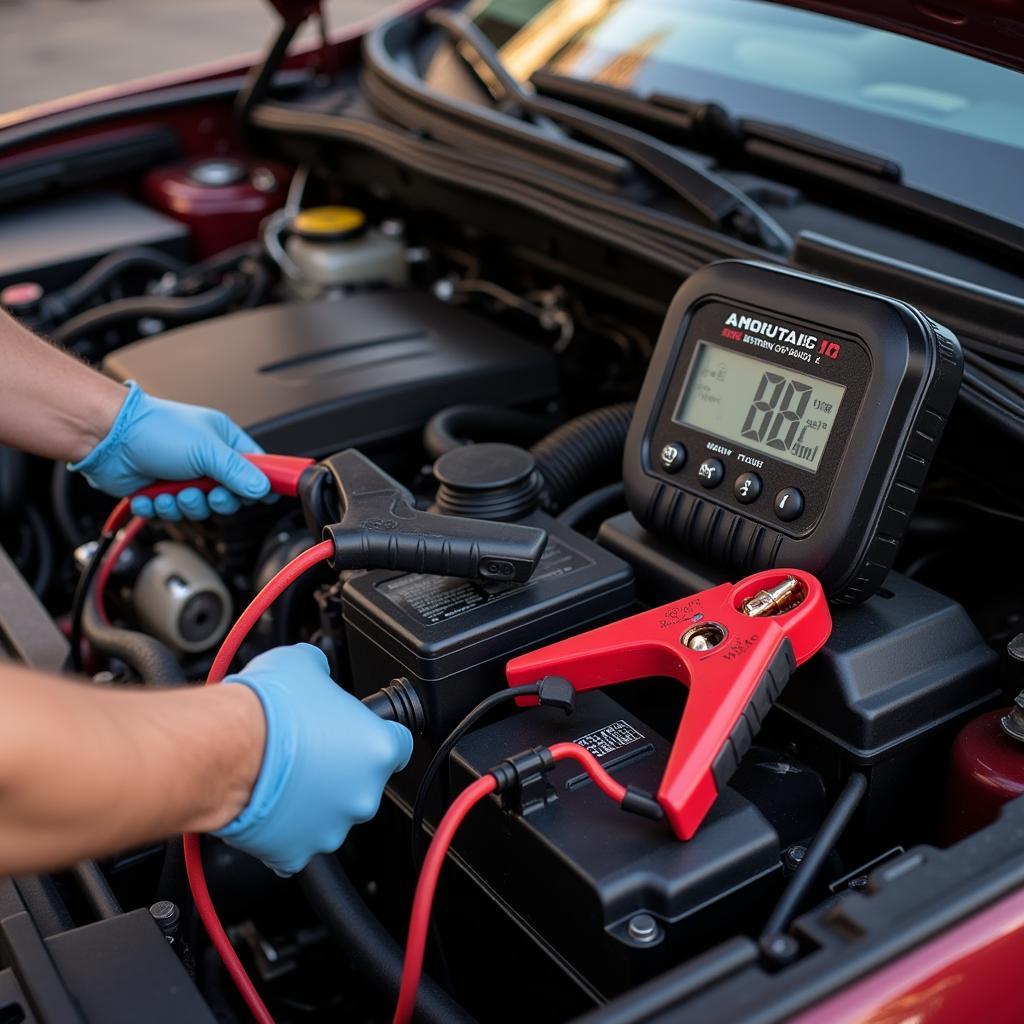Club Car Fuel Injection Problems can be a real headache, leaving you stranded on the golf course or struggling to get around your property. This guide dives deep into the common issues, diagnostics, and solutions for fuel injection problems in your Club Car. We’ll cover everything from clogged injectors to faulty sensors, empowering you to get your cart back on track. Let’s get started!
Understanding Club Car Fuel Injection Systems
Unlike older carbureted models, modern Club Cars often utilize fuel injection systems for improved performance, fuel efficiency, and reduced emissions. These systems rely on a complex network of sensors, actuators, and electronic controls to deliver the precise amount of fuel needed for optimal combustion. When one component malfunctions, it can trigger a chain reaction, leading to various driveability issues. Have you ever experienced a sudden loss of power or rough idling? These can be telltale signs of fuel injection problems.
Common Club Car Fuel Injection Problems
Several issues can plague a Club Car’s fuel injection system. Here’s a breakdown of the most common culprits:
- Clogged Fuel Injectors: Dirt, debris, and fuel residue can accumulate in the injectors, restricting fuel flow and causing poor performance.
- Faulty Fuel Pump: A failing fuel pump can struggle to deliver adequate fuel pressure to the injectors, resulting in a loss of power, especially under load.
- Malfunctioning Sensors: Sensors like the throttle position sensor (TPS), manifold absolute pressure (MAP) sensor, and oxygen sensor play crucial roles in determining the correct fuel mixture. A faulty sensor can send incorrect signals to the engine control unit (ECU), leading to an improper air-fuel ratio.
- Wiring Issues: Damaged or corroded wiring can disrupt the communication between the various components of the fuel injection system, causing intermittent problems or complete failure.
- ECU Problems: While less common, a malfunctioning ECU can wreak havoc on the entire fuel injection system, requiring specialized diagnostic equipment to pinpoint the issue.
Diagnosing Club Car Fuel Injection Problems
Diagnosing fuel injection problems requires a systematic approach. Start by visually inspecting all components for any obvious signs of damage, such as loose connections, cracked hoses, or corroded wires. Next, use a fuel pressure gauge to verify that the fuel pump is delivering the correct pressure. If the fuel pressure is low, the pump may be failing or the fuel filter might be clogged. Remember those carb problems car we talked about? While Club Cars with fuel injection don’t have carburetors, understanding fuel delivery systems in general is crucial.
“A good diagnostic tool can save you hours of frustration and unnecessary repairs,” says John Miller, a seasoned Club Car mechanic with over 20 years of experience. “Invest in a quality OBD-II scanner to read error codes and monitor sensor data.”
Troubleshooting and Repairing Club Car Fuel Injection Problems
Once you’ve identified the problem, you can begin the repair process. Here are some common solutions:
- Cleaning Fuel Injectors: Use a specialized fuel injector cleaner or have them professionally cleaned.
- Replacing the Fuel Pump: If the fuel pump is faulty, it will need to be replaced.
- Replacing Faulty Sensors: Replace any malfunctioning sensors with OEM or high-quality aftermarket parts.
- Repairing Wiring Issues: Repair or replace any damaged or corroded wiring.
- Replacing or Reprogramming the ECU: If the ECU is the problem, it may need to be replaced or reprogrammed.
Why is my Club Car fuel injector not working?
A non-working fuel injector can stem from several issues, including clogged injectors, a faulty fuel pump, malfunctioning sensors, wiring problems, or even a bad ECU.
How do you test a fuel injector on a Club Car?
You can test a fuel injector by checking for proper resistance with a multimeter or by observing the spray pattern during operation (with caution). A professional mechanic may use more advanced diagnostic tools.
Conclusion
Club car fuel injection problems can be complex, but with a methodical approach, you can diagnose and repair the issue. By understanding the common problems, diagnostic procedures, and repair solutions, you can keep your Club Car running smoothly. Remember those 80s car problem 88 mph? Well, with proper maintenance, your Club Car won’t face similar issues. For further assistance or if you prefer to leave the repairs to the professionals, contact us at AutoTipPro at +1 (641) 206-8880. Our office is located at 500 N St Mary’s St, San Antonio, TX 78205, United States. We’re here to help keep your Club Car in top condition.






Leave a Reply